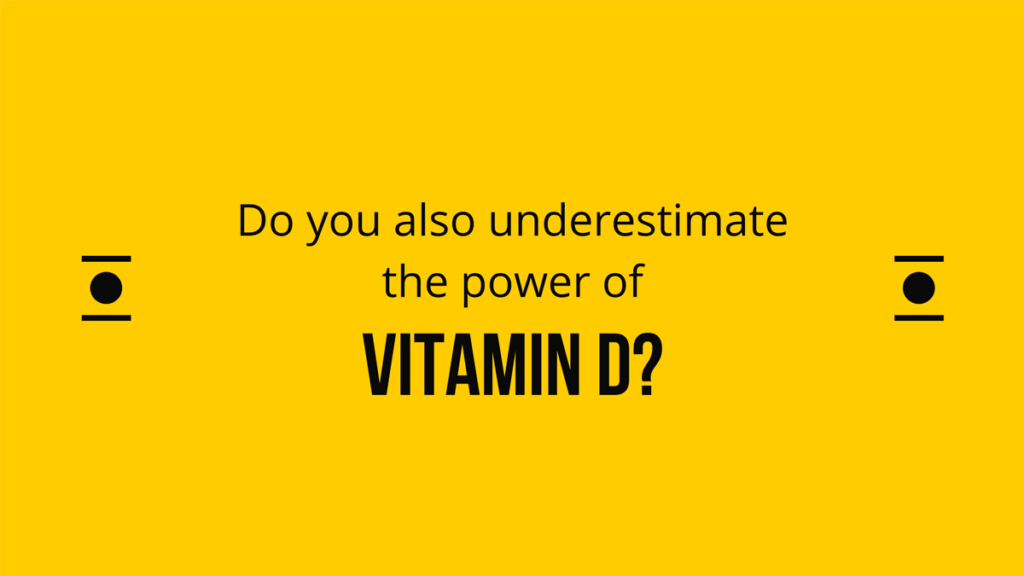Vitamin D is the powerhouse of vitamins. It is a fat-soluble vitamin. Most of us neglect taking Sunlight these days. But, one should note that it is one of the most important vitamins which helps to strengthen the immune system.
People hailing from metro cities are always found in AC cars, AC rooms, or AC offices. They have no time to take a few minutes of sunlight. And so they fall into the trap of common nutrient deficiency. But just a few minutes spent in Sun can help you stay away from Vitamin D deficiency.
Sources of Vitamin D
The ultimate and best source of Vit D is Sunlight. Be in the Sun for at least 10-15 minutes daily in the morning, preferably before 9 AM. But, one should not expose their skin in Sun for longer intervals as it can cause Skin Cancer.
Foods such as Salmon, Sardines, Egg Yolk, Shrimp, Fortified Milk & Cereals, Cheese, Beef Liver, Mushrooms, etc. also contain D Vitamins.
Symptoms & Diseases caused by Vitamin D Deficiency
Symptoms that a body can show if deficient in D Vitamins are:
- The body feels sick and tired always
- Prone to infections
- Muscle pain and weakness
- Bone and Back problems
- Tremendous Hair Loss
- Very Moody
- And Low Immunity
Diseases that can happen due to this deficiency are:
- Autoimmune problems
- Cancers such as Breast, Prostate & Colon
- Osteoporosis
- Rickets
- Osteomalacia
Why is Vitamin D so important?
It is important for our body because Calcium along with D Vitamin is a very essential element for our bone health. It helps to make our bones and muscles stronger.
If there is a deficiency of D vitamins in the body, the bones can get weak and thin. And can cause Rickets in children, and osteomalacia in older adults.
It helps to build your immune system stronger and reduce the inflammation present in the body.
Daily intake of Vitamin D
The daily intake of D Vitamins varies with different age groups.
- Infants (0-12 months) can take 400 IU daily.
- Children (1-18 years) & Adults (up to 70 years) can digest 600 IU
- Adults (over 70 years) need 800 IU
where IU = International Unit
And 1mcg (microgram) = 40 IU
How Can One Know If He/She is Deficient in Vitamin D?
A simple blood test can tell your Vit D levels, whether it is low, normal, or excess.
Accordingly, doctors can suggest medicines, if required.
People having low D vitamins are asked to take a dose of the supplement every week.
Caution While Taking Certain Medications
Vitamin D can interact with certain medications and can be harmful and risky in some cases.
- People taking steroids are at very high risk. Steroids can reduce calcium absorption in the body and as such D Vitamin levels can get badly affected.
- People undergoing weight-loss treatments also come under the risk groups.
- Cholesterol patients taking medications for lowering their cholesterol levels can have problems absorbing D Vitamins.
Conclusion
Vitamin D is very essential for the body and one should not neglect to take the few available sources of it. One should spend some time in Sun daily but early mornings. And should consume natural food sources of it.

